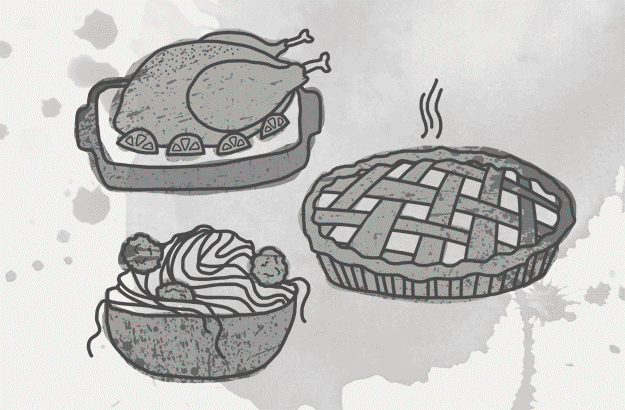Advice from people who’ve been there.
We the BuzzFeed community to share the best ways to be there for someone who has experienced a miscarriage.
Here are some of their responses.
Alice Mongkongllite / Via BuzzFeed
Show your support with food.
“People dropping off meals was exactly what we needed. It showed us that they wanted to take care of us at a time we couldn’t really do much for ourselves.” — Kristyn Hilker Hollingsworth, Facebook
“Please provide a meal for us…no one even offered and I didn’t want to get off the couch. A nice, warm meal would have meant the world.” —Emily Sutton, Facebook
“I am going through a miscarriage right now. A home-cooked meal would be amazing.” —Tessa Bryce
If you’re not much of a cook or don’t live close enough to bring food over, you could also send a gift card to a local restaurant that delivers.
Say, “It’s not your fault.”
“Don’t try to brainstorm for a reason the miscarriage might have happened. Many women look for anything to blame for their miscarriage, and since it is her body that was carrying the baby, they often come around to blaming themselves. This can be a crippling and devastating conclusion to come to, and it is most likely a false assumption. The vast majority of miscarriages cannot be prevented in any way. So tell her it’s not her fault. And never, never try to blame her for it, or make a statement about what she should have done differently.” —
Don’t make “at least” statements.
“Any sentence that starts with, ‘At least you…’ is not an empathetic response. I suggest saying something like, ‘I can’t imagine what you must be going through. If there is anything you need let me know.’” —
“Don’t ever start a sentence with, ‘At least…’ I was told by a friend just yesterday, ‘At least you didn’t have to suffer the stretch marks!’ Fucking really?” —Jennifer Roland, Facebook
If they are using their baby’s name, follow their lead.
“It’s not like I wanted to talk about the details but I wanted to acknowledge that she existed. She was still my daughter. She had a name, a personality, things that had been bought for her, and my husband and I held her still little body.” —
“My son was stillborn and people walked away from me like I had done something wrong. All I wanted was for someone to give me a hug and tell me they were there for me. I love hearing people mention my son Matthew’s name… Please say his name to me; it hurts more when I believe he is forgotten.” —Hazel Diane Flint, Facebook
“My friends had a star named after the baby we lost.” —
“Acknowledge the baby was a very real person to the mother. It was a person with a future that the mother imagined. My daughter had a personality in there and I knew it better than anyone. Ask about it.” —
Validate that the loss, and the grief, are real.
“Don’t trivialize it based on how early the miscarriage happened. Six weeks or 16 weeks, the emotional pain is intense.” —
“Often, women who experience miscarriages early on in their pregnancy are told that it ‘wasn’t really a baby yet’ and their right to grieve is attacked. Reassuring women that they are still mothers, they still lost a child, and it is perfectly OK to feel terrible is something women need to hear during such a tough time.” —
“First, validate their loss and their love for this baby. It is not a time to split hairs over what constitutes an embryo versus a fetus versus a ‘real baby.’ To the parents grieving this loss, it is a baby. Always. Every time. End of discussion.” —Angela Gomes Plaisted, Facebook
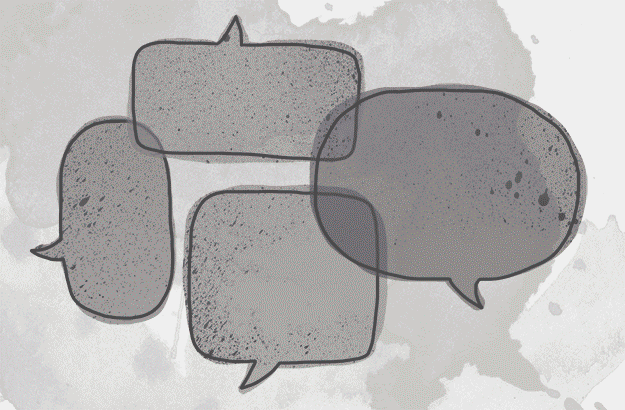
Alice Mongkongllite / Via BuzzFeed
Say SOMETHING.
“Just don’t ignore me. Just saying you’re sorry is enough; I was so heartbroken by the family members who never even called me.” —Danielle Fala Regan, Facebook
“A simple ‘I’m here if you need to talk’ is an amazing gesture. They may not want to talk but they know they have support.” —
“She may not want to talk but a quick voicemail or text from a friend just to let them know that they are thinking about them is all you need to hear sometimes. She will call back when she is ready to talk.” —Jen, Facebook
Avoid cliches like “Everything happens for a reason” or “God has a plan.”
“Being told that your miscarriage is ‘all a part of God’s plan’ is absolutely awful to hear. People don’t say that at the funeral of a 12-year-old, so why do people find it acceptable to say after a miscarriage?” —Kathryn Matte, Facebook
“It’s not helpful when people tell you, ‘It’s just not your time,’ or say, ‘At least you know you can get pregnant.’ It is helpful when people acknowledge how much it sucks and how disappointing and devastating is to suddenly come crashing down from the high of planning for a new life.” —
“Please stop saying that everything happens for a reason. It still makes me want to scream when I hear that.” —
“When people said, ‘God knows best,’ or ‘Everything happens for a reason,’ it made me angrier with God, and made me question myself and my faith, like I was being punished or if He turned His back on me.” —
Remember that fathers need support too.
“There are two parents involved, and though the woman may be going through the most physical trauma, the father will be experiencing his own share of emotional pain and should be granted just as much support.” —
“Don’t forget to give the dad some support. When this happened to friends of mine, everybody was, of course and rightly concerned and supportive of the mother, but her poor husband was also heartbroken and trying to stay strong for his wife. I have to say I felt so bad for both of them.” —
And siblings, when appropriate.
“Don’t forget about the siblings (if any). My mom had a miscarriage, and that baby was as real to me as any of my other siblings. It was a baby, plain and simple. I cried for days.” —Sarah Trice, Facebook
“See what you can do for the partner or any other children the parents have; ask to take the kids out for a day trip to give the parents time to themselves.” —
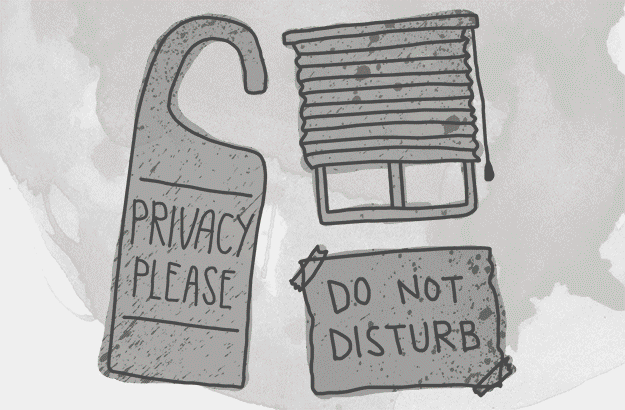
Alice Mongkongllite / Via BuzzFeed
Let them grieve privately if that’s their choice.
“Some people, myself included, don’t want a private thing like that to be made public or have any sort of big outpouring of sympathy. While it might be easier for some women or couples to grieve more openly, please be respectful that some people might not want to discuss it at all. I am the type of person who wants to chose my moments to let the emotion in and cry; I do not want to be brought to tears in a public place or when I am not ready for an outpouring of emotion. A handwritten card that the person can open at a moment of their choosing would be a good idea. Unless they have written about the miscarriage on social media, it is an absolute no-no to write them a publicly viewable message on Facebook.” —Jessica Calhoun, Facebook
“Don’t push the topic. Be supportive and as understanding as you can, but if it’s clear they don’t want to talk about it then respect that.” —Rachel Gesell, Facebook
“For god’s sake, if she says she doesn’t want to talk about it, don’t insist that talking will help. I couldn’t talk about it without breaking into sobs for a full year after miscarrying, and I didn’t want to explain what a blighted ovum was or why I’d made it to four months or listen to the bullshit about how I could try again.” —
Offer to take care of errands or other tasks.
“Offer to do housework like laundry, which can pile up easily. If they had a nursery set up, ask if they would like help packing the things away or offer to do it for them if it’s too painful. (Of course, some may not want to take the room down until they are finished grieving, so tell them that you understand.)” —
Share your own story.
“If you’ve had a miscarriage, talking about it to other people who’ve had them is SO helpful. I had a lot of friends come to me privately and talk about it, and it helped me immensely. People often joke that women are bitches and competitive and gossipy. People who say that don’t realise how much women band together in things we’re not welcome to discuss openly and provide support for each other.” —Nancy Lorenz, Facebook
Give hugs.
“Hold their hands or hug them (because it could be a couple that’s grieving) and listen.” —
“A hug and a reassurance that it’s a really horrid, unfair thing to have had happen.” —
“Sometimes nothing can be said. Sometimes a really good hug can mean more than a thousand words.” —
“If you run out of things to say, hugs and touch go a long way for some grieving women (but know the person you’re dealing with).” —
Do something personalized, that makes sense for them.
“The best thing that was ever said or done for me after one of my three miscarriages was when my best friend sent me a surprise gift of a DVD collection of Teenage Mutant Ninja Turtles, a T-shirt from Saved By The Bell, and a huge container of gummy bears. The gifts had nothing to do with my loss, but everything to do with a friend who knew me well enough to realize that married, 28-year-old me needed a touch of bizarre back in my life.” —
Don’t talk about that time your dog died.
“I know pets are part of the family and when they die it’s heartbreaking, but please don’t compare that pain to a miscarriage.” —
“Probably the worst thing was when someone compared it to losing a pet. However, a pet is not growing inside you one minute and not the next.” —
“Don’t compare you losing your pet to them losing a child. I love my pets and grieved when I lost them, but nothing like losing my daughter.” —Alicia Maria Perrotti, Facebook
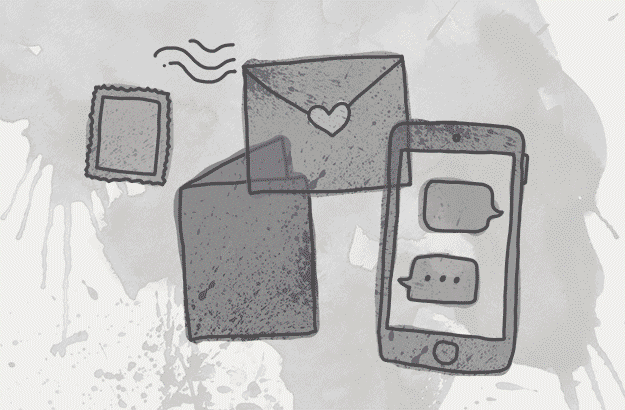
Alice Mongkongllite / Via BuzzFeed
Send a card/text/email.
“I wasn’t really able to talk about what happened to us, but welcomed every text, email, or voicemail I received. Honestly just knowing someone was thinking of us and/or praying for us helped.” —Kristyn Hilker Hollingsworth, Facebook
“We have lost all of ours in pregnancy. The most meaningful thing anyone did for me was to send me a sympathy card. Not only did it help to know someone validated our loss, but it also gave me a physical memento as a keepsake of that baby.” —Sarah Elizabeth, Facebook
Don’t bring up future babies.
“Don’t say, ‘It’ll happen,’ because it may not happen.” —Rhianna Winn, Facebook
“Don’t refer to any future happiness (‘It’ll happen again’ — just because it happened this time doesn’t mean to say it will next); you won’t necessarily be made aware of how difficult it may have been to achieve the pregnancy that has just been lost. My two miscarriages have been as a result of IVF so actually getting pregnant was far from easy, and thinking about whether I had the strength to go through the whole process in the future just put me under the blackest of clouds.” —
Ask how you can best support them.
“I’ve had 12 miscarriages and one stillbirth, and the one thing I wish someone would have done for me is simply to ask me if I need anything, even a shoulder to cry on.” —Jennifer Navarro, Facebook
Know that they’ll never forget their loss.
“Remember their lost child. Reach out to them around the anniversary of their loss to let them know you’re thinking of them.” —Becky Britz, Facebook
“It can hit you at anytime for years afterward and it’s OK to grieve.” —Emma Dwyer, Facebook
“Having gone through two miscarriages, each loss felt as though my heart were being ripped out. The pain was equally strong emotionally and physically. Each year, on their due date, I’ll think of those two babies that I should be loving, hugging, and laughing with.” —
Remember it’s about them, not about you.
“Allow the griever to open up at their own pace and be there for them in the way that they need you and not the way you want to be there for them.” —Sidney, Facebook
“Be there for them on their terms, not yours.” —Angela Durant, Facebook
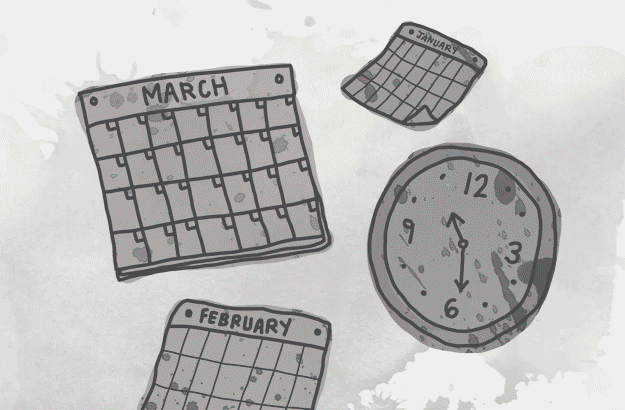
Alice Mongkongllite / Via BuzzFeed
Give them time.
“NEVER give up on your friend. The friend who has miscarried may want to be alone for a little while, may not be herself. Time will heal, but do not let the time distance your friendship — if anything, let it allow you to become closer. ” —Jen, Facebook










